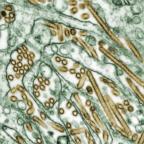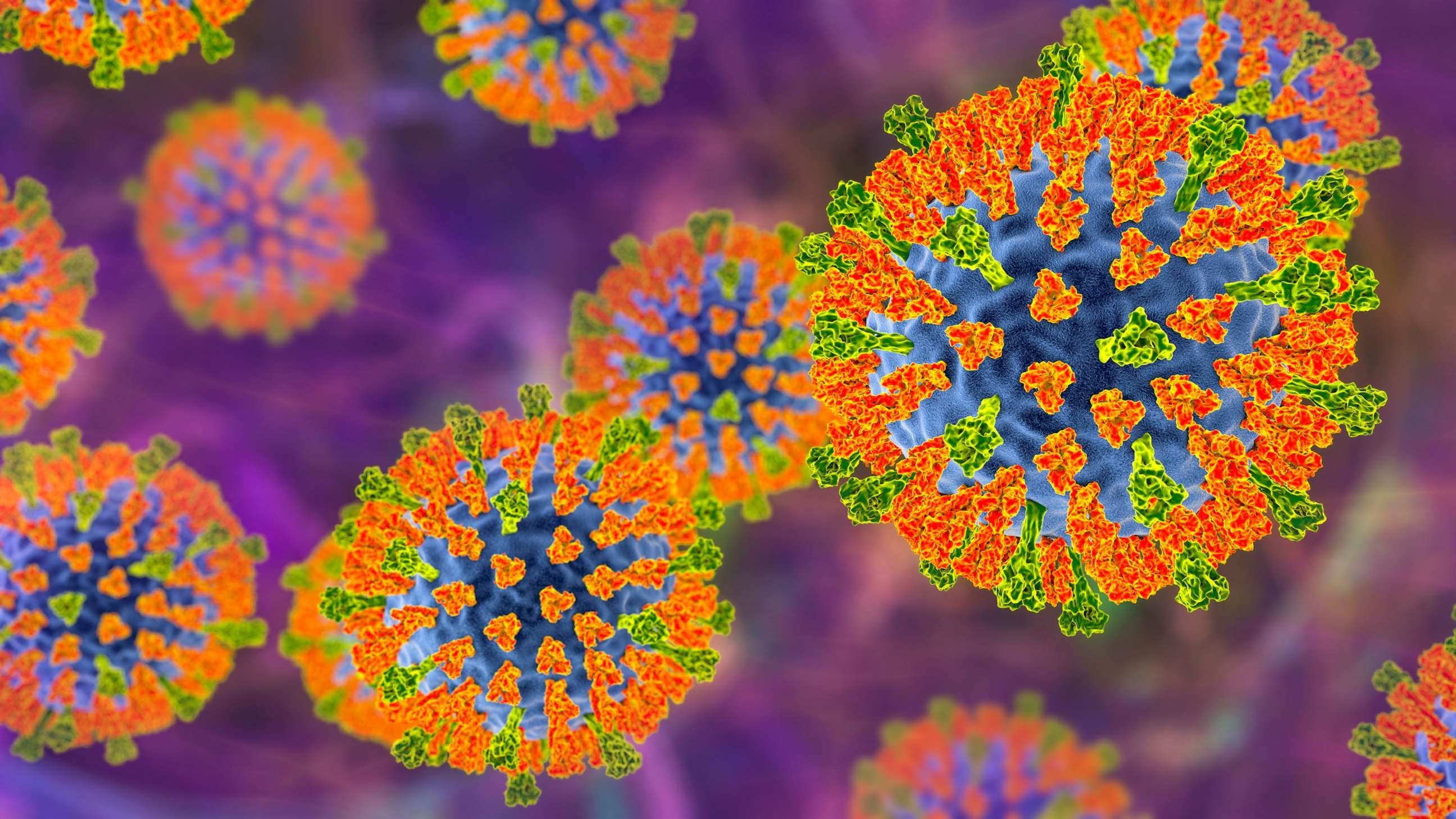Mpox is on the rise: Who's eligible for a vaccine, and do you need a booster?
Mpox, formally known as Monkeypox, cases are on the rise, CDC says.
Mpox, formerly known as monkeypox, cases are on the rise here in the U.S., with nearly double the number of infections compared to the same time last year, according to Centers for Disease Control and Prevention data.
While the magnitude of the outbreak experienced in 2022 – where national cases topped 32,000 – is largely over, some high-risk groups need to continue taking precautions, experts say.
"Most of the cases that we're seeing reported are either unvaccinated or under-vaccinated, meaning they either never received a vaccine, or they only got one dose," Dr. Jenni McQuiston, deputy director of the CDC's high consequence pathogens and pathology division told ABC News.
The Jynneos vaccine comes in two doses and is recommended for those who have been exposed to someone with mpox as well as those who had a sex partner in the past 2 weeks who was infected. There are currently no recommendations for a booster. Locations offering the free vaccine can be found on the CDC website.
Others eligible for the shot are those who identify as gay, bisexual, or a man who has sex with other men who have had more than one sexual partner or been diagnosed with more than one sexually transmitted disease in the past six months. Those with immune-compromising conditions, such as HIV, are also eligible.

"Current guidance aims to curb this increase by targeting vaccination efforts toward high-risk groups and individuals with potential exposure to mpox, underscoring the importance of these preventive measures in our public health response," said Dr. John Brownstein, chief innovation officer at Boston Children's Hospital and an ABC News contributor.
While the mpox virus first started spreading among gay and bisexual men as well as certain other groups in the initial outbreak, the virus does not discriminate, experts say. It will spread between any two people.
Like many vaccines, the shot primarily works to protect against severe illness, though it may not guarantee avoiding infection. It typically takes about two weeks after the second dose to reach full protection.
"Vaccines don't always 100% prevent disease, they ultimately reduce the severity of disease. So, seeing people contract mpox after vaccination is not unexpected. But we have seen less severe disease in the majority of patients with mpox in this current outbreak," Dr. Richard Silvera, associate program director of the infectious diseases fellowship and assistant professor of medicine at the Icahn School of Medicine at Mount Sinai told ABC News.
The vaccine is typically given in two doses, 28 days apart. Those who only received one shot should receive their second dose regardless of when they received their first to maximize protection, experts say.
"They're not considered fully vaccinated until they have at least two doses. They don't need to start over or repeat it. They just need to get that second dose," McQuiston said.
"We are recommending that you go ahead and get that second dose no matter how much time has elapsed [since your first dose], McQuiston added.
Those who previously received both shots are considered fully vaccinated. Public health authorities continue to investigate if a booster dose may be necessary in the future to bolster protection.
"We have some long-term efficacy studies that are ongoing and those are planned over the next several months. But right now, only one in four individuals for whom the vaccine is recommended, in terms of them being potentially at risk for mpox, have gotten fully vaccinated," McQuiston said.
Early research indicates that antibodies from vaccination decline one year after getting the shot, according to preliminary data being presented at the European Congress of Clinical Microbiology and Infectious Diseases conference in late April. Scientists studied about 100 people finding that over 40% had a detectable loss in antibodies one year after vaccination.
There are currently no concerns with vaccine supply, according to McQuiston. Dr. Silvera notes he has been helping people catch up on their vaccinations by providing a first or second dose.
New York City is currently dealing with triple the number of cases the city saw at the same time last year. The city is not experiencing any vaccine supply issues, according to a spokesperson for the NYC Department of Health.
The CDC sent out an alert to medical providers in December to look out for travelers into the U.S. as a more lethal type of the mpox virus circulates in the Democratic Republic of Congo. No cases of that virus type have appeared in the U.S. so far.
"We're watching what's happening in the Democratic Republic of Congo carefully…and we are preparing here in the United States as best we can," McQuiston said.
Aside from getting vaccinated, there are other ways to protect yourself from getting infected, experts say.
"Those regular precautions are really kind of the bread and butter of how to deal with a public health outbreak. So, really just communicating with your partners, asking them how their health has been, asking if they've had any exposure they're concerned about." Silvera added.
"Try to avoid physical contact with someone who may have had a recent exposure or has a lesion at the time. And if you do have a lesion, it is worth seeking out care. We do have medications that can shorten the duration of illness," Silvera added.
An antiviral drug, known as TPOXX, is available and can help treat more severe mpox cases and is available to those who are more likely to get severely ill, like those with immune-compromising conditions.
"The increase in cases is a stark reminder of the virus's presence and the ongoing need for vigilance and preventive measures," Brownstein said.




